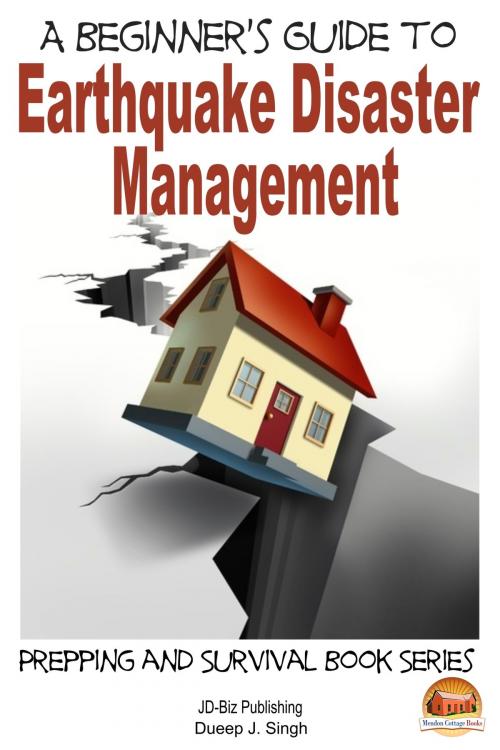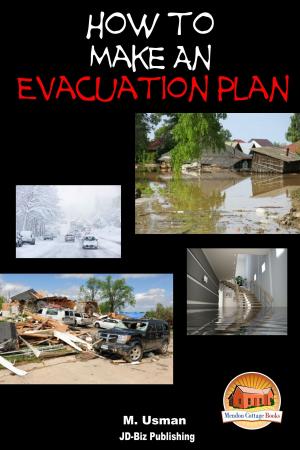A Beginner's Guide to Earthquake Disaster Management
Nonfiction, Health & Well Being, Health, First Aid| Author: | Dueep J. Singh | ISBN: | 9781310301018 |
| Publisher: | Mendon Cottage Books | Publication: | January 4, 2015 |
| Imprint: | Smashwords Edition | Language: | English |
| Author: | Dueep J. Singh |
| ISBN: | 9781310301018 |
| Publisher: | Mendon Cottage Books |
| Publication: | January 4, 2015 |
| Imprint: | Smashwords Edition |
| Language: | English |
A Beginner’s Guide to Earthquake Disaster Management
Table of Contents
Introduction
What You Should Know about Earthquakes
What Are the Aftermaths of an Earthquake
Which Are the Safe Places in Your House
Fear of Earthquakes
First Aid Training
Behavior of Children during Earthquakes
Emergency Earthquake Disaster Kit
Home
Extinguishers for Electric Fires
Items for Your Car
Readying your house for An Earthquake
Building Codes and Standards
On the Road during an Earthquake
Evacuation of your house
Conclusion
Author Bio
Publisher
Introduction
Earthquakes have long been powerful natural calamities influencing the life and times of mankind down the centuries. One would not be surprised if the lost lands of Atlantis were buried under the sea because of a powerful underwater earthquake. In the same manner the Himalayan mountain range came out from under the Tethys sea millenniums ago, due to this upheaval when the tectonic plates of the land shifted and changed the topography of what is now known as the Indian subcontinent.
So is it a wonder that earthquakes have always been considered by humans down the ages to be caused due to the wrath of the gods or due to some other supernatural mysterious agency, which created and destroyed and was terrible in its intensity while it lasted.
Excavations in ancient China brought to light earthquake indicators made millenniums ago. These were frogs made up of metal, which had light round balls in their mouths. The moment the ground trembled in the vicinity, the vibrations would reach the metal, and the balls would drop down into the bowls underneath the frogs’ mouths.
I have a feeling that the ancient Chinese were used to earthquakes, because as far as I know, an earthquake needed to happen, before the vibrations would register. And at that time, it would be a situation of save yourself instead of looking at the earthquake indicator.
A Beginner’s Guide to Earthquake Disaster Management
Table of Contents
Introduction
What You Should Know about Earthquakes
What Are the Aftermaths of an Earthquake
Which Are the Safe Places in Your House
Fear of Earthquakes
First Aid Training
Behavior of Children during Earthquakes
Emergency Earthquake Disaster Kit
Home
Extinguishers for Electric Fires
Items for Your Car
Readying your house for An Earthquake
Building Codes and Standards
On the Road during an Earthquake
Evacuation of your house
Conclusion
Author Bio
Publisher
Introduction
Earthquakes have long been powerful natural calamities influencing the life and times of mankind down the centuries. One would not be surprised if the lost lands of Atlantis were buried under the sea because of a powerful underwater earthquake. In the same manner the Himalayan mountain range came out from under the Tethys sea millenniums ago, due to this upheaval when the tectonic plates of the land shifted and changed the topography of what is now known as the Indian subcontinent.
So is it a wonder that earthquakes have always been considered by humans down the ages to be caused due to the wrath of the gods or due to some other supernatural mysterious agency, which created and destroyed and was terrible in its intensity while it lasted.
Excavations in ancient China brought to light earthquake indicators made millenniums ago. These were frogs made up of metal, which had light round balls in their mouths. The moment the ground trembled in the vicinity, the vibrations would reach the metal, and the balls would drop down into the bowls underneath the frogs’ mouths.
I have a feeling that the ancient Chinese were used to earthquakes, because as far as I know, an earthquake needed to happen, before the vibrations would register. And at that time, it would be a situation of save yourself instead of looking at the earthquake indicator.















